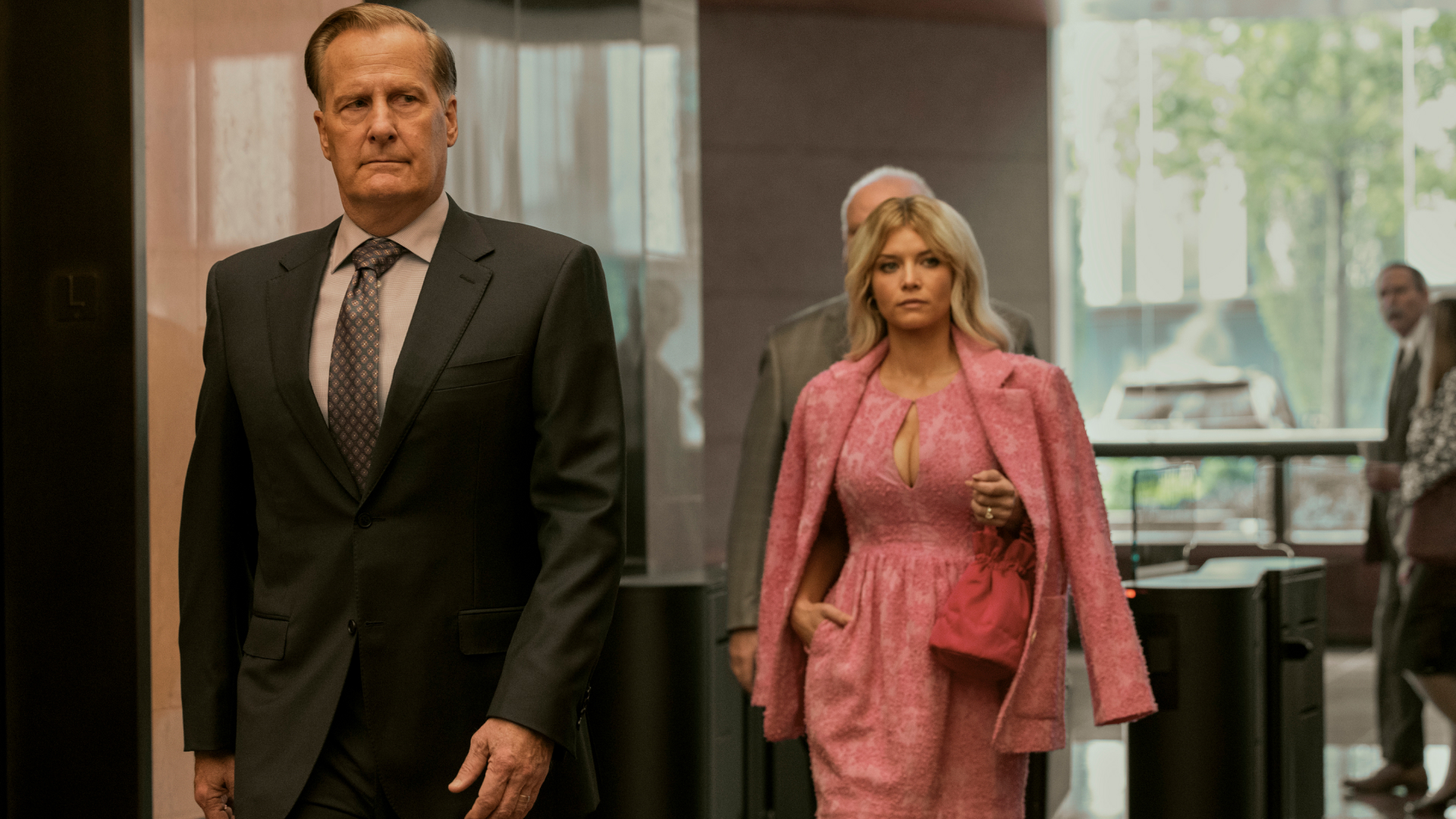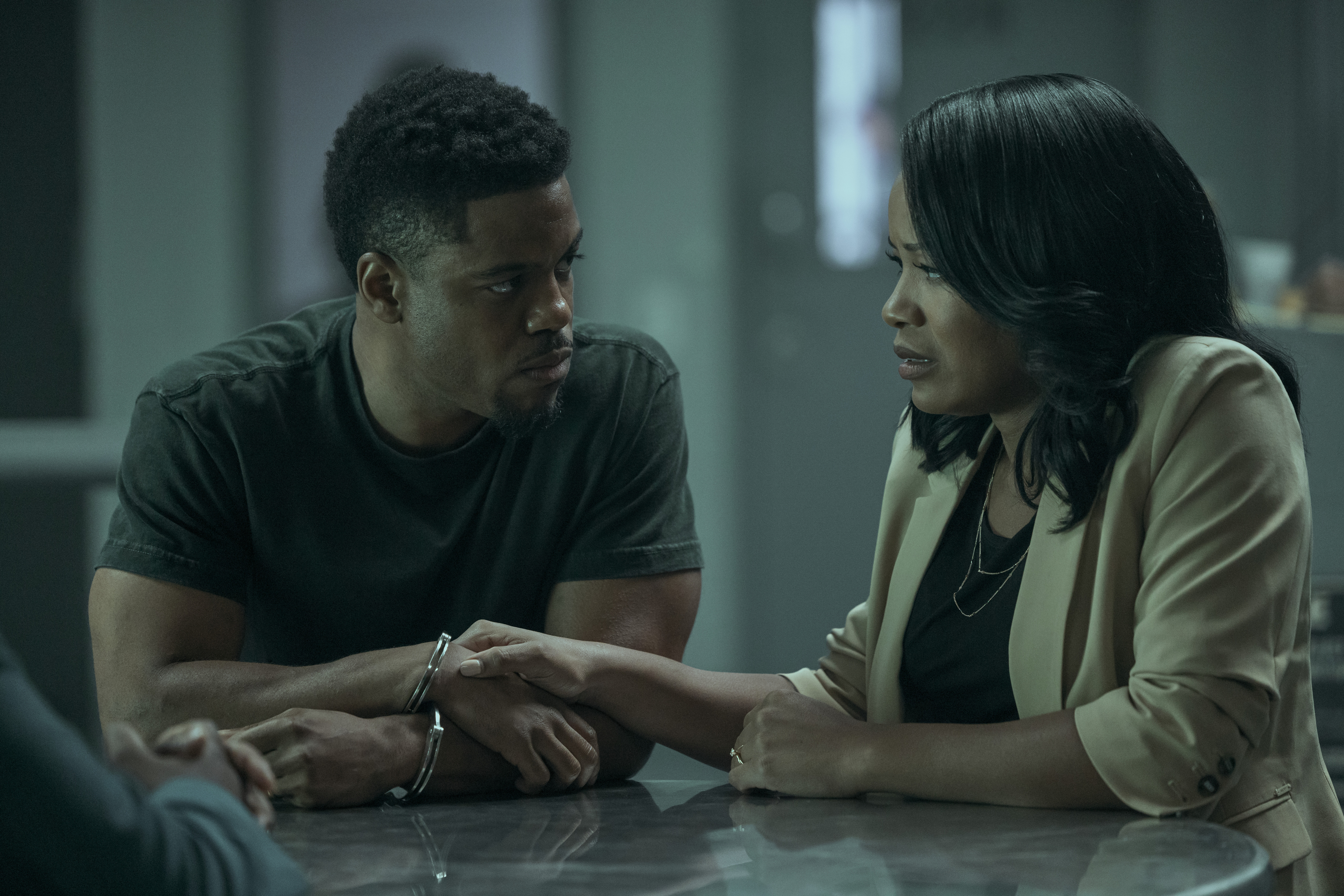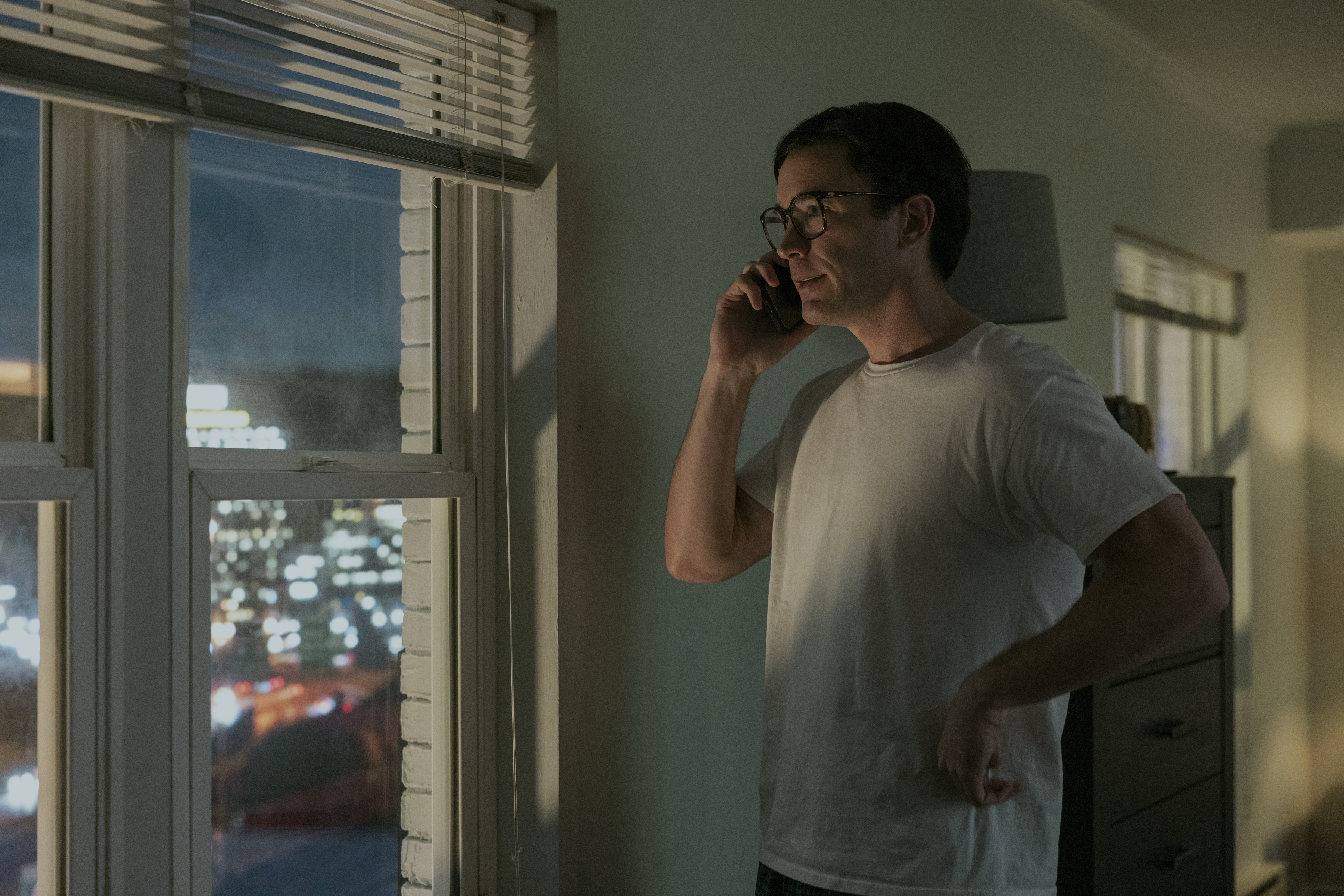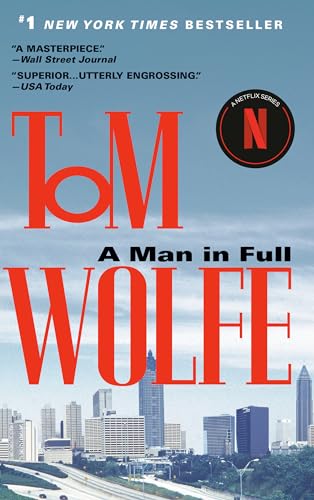The Shocking, Explicit Ending of 'A Man In Full,' Explained
The Netflix series follows the rivalry between a bankrupt real estate mogul and a banker.

A Man in Full, Netflix's latest prestige miniseries from showrunner David E. Kelley, is catnip for anyone with a penchant for tense, legal drama and a knack for recognizing members of an ensemble. The six-episode series stars Emmy winner Jeff Daniels, perennial goddesses Diane Lane and Lucy Liu, and The Good Place fan-favorite William Jackson Harper, and it features Regina King's first directing stint since 2020's One Night in Miami. Based on Tom Wolfe's 1998 novel of the same name (which clocks in at 742 pages), A Man in Full also offers a (condensed) satirical look at an ego-driven rivalry between two businessmen, which ends in a conclusion that can leave viewers a little shell-shocked.
The main figure bringing together several storylines is Charlie Croker (Daniels), an Atlanta real-estate tycoon and college football legend who takes a serious blow when his literal billion-dollar debt comes due. His rival is Raymond Peepgrass (Tom Pelphrey), a divorced banker who both envies and despises Charlie, while also striking up a relationship with the mogul's ex-wife, Martha (Lane). There's also a mayoral race playing out, and Atlanta's incumbent mayor Wes Jordan (Harper) is scheming to out his opponent's alleged sexual assault of Martha's friend Joyce (Liu), with Charlie's reluctant help. Meanwhile, Charlie's head lawyer Roger White (Aml Ameen) is fighting to free a wrongfully imprisoned man named Conrad Hensley (Jon Michael Hill), the husband of Charlie's assistant Jill (Chanté Adams).
A lot happens in this show, and that's all before the final moments of the miniseries bring a dramatic end to the saga of Charlie Croker. Below, read on for a breakdown of where everyone ends up in the events of A Man in Full, including whether certain characters are actually dead.

Roger White (Aml Ameen) and Conrad Hensley (Jon Michael Hill) at court, with their wives Henrietta (Jerrika Hinton) and Jill (Chanté Adams) behind them, in the A Man in Full finale.
Does Conrad get out of jail?
A Man in Full's finale takes place over one busy day, part of which includes the hearing to get Conrad's charges dismissed. Showrunner David E. Kelley, known for helming classics like Ally McBeal and contemporary favorites like Big Little Lies, loves a courtroom sequence—and this one is impressive. The scene finds Roger piercing through the racist judge's prejudice by appealing to his legal reasoning. (Look, sometimes we need to be delusional to stay sane.)
As you may recall, Conrad's case centered around a traffic incident that turned violent. As he attempted to stop his car from getting towed, the parking enforcement officer called for backup, and the cop who arrived on the scene forced him to get out of the vehicle. After the cop hit him twice, Conrad freed himself and knocked the cop unconscious.
In court, when the body cam is used as evidence, it reveals that Conrad was subsequently tased and the angry tow truck driver then began kicking Conrad while he was down.

Conrad (Jon Michael Hill) and Jill Hensley (Chanté Adams) in A Man in Full.
Roger's argument hinges on getting the judge to relate to Conrad's motivations that day. He questions the cop on the stand and establishes that Conrad was reasonably fearing for his life while facing two cops and the tow truck driver. Because of Conrad's experiences and knowledge of the racist history of policing in America, he responded on impulse in an act of reasonable self-defense.
Stay In The Know
Get exclusive access to fashion and beauty trends, hot-off-the-press celebrity news, and more.
White then argues that Conrad has already been punished for attacking a law enforcement officer—that everything he experienced both on the day of the incident and in his week in jail (including being placed in solitary confinement and threatened for helping an assault victim) was punishment enough. White also appeals to the judge's common sense and experience, while evoking the high possibility that Conrad could have ended up a victim of a police shooting that day on the side of the road.
After the judge determines that the possibility that Conrad was acting in self-defense can't be excluded, and drops all charges, a shocked Conrad responds with, "That's it?" It's a fair question since his life has been dismissed by the judge this entire episode. (Many viewers have pointed out how triggering Conrad's storyline is throughout the series.) Still, it's satisfying that this story could end on a high note, with Conrad and Jill heading into their first child's birth without the specter of jail hanging over them.

Joyce Newsom (Lucy Liu) and Martha Croker (Diane Lane) attend a gala in A Man in Full.
Does Charlie out Joyce's assault?
By the finale, Charlie has already won one of his battles. In the penultimate episode, determined PlannersBanc employees Peepgrass and Harry Zale (Bill Camp) are told by the bank's president to back off Croker Industries. The president does not explain the switch-up, but viewers know that it was instigated by Mayor Jordan, who offered Charlie help in exchange for the tycoon agreeing to go public with mayoral candidate Norm Bagovich's (John Lacy) history of sexual assault. In college, Bagovich allegedly assaulted now-beauty founder Joyce Newman (Liu), and Jordan wants to use that info to tank the challenger's campaign, even though Joyce herself was against the information being released.
The big speech where Jordan intends to speak publicly about Joyce's assault is the same day as Conrad's trial, and Charlie is visibly reluctant about the plan from the start of the episode. Still, he goes by Joyce's office to try, and fail, to convince her to attend the speech. Episode 5 includes a compelling scene where Joyce speaks candidly about her recollection of the incident to Martha and admits that she doesn't remember exactly what happened, or whether she gave consent. She's clearly shaken and has conflicted feelings, were the incident to be dredged back up in the media, she would become the pawn in a larger spectacle.

Serena (Sarah Jones) and Wally Crooker (Evan Roe) attend Charlie's Hall of Fame ceremony in A Man in Full.
For Charlie, it's as if outing Joyce is the final line to cross that would make him truly cruel and unredeemable. Any attempts to stop him come down to his family. His ex-wife Martha immediately puts her foot down and threatens to take away his access to his teenage son Wally (Evan Roe). Wally doesn't seem to think his dad's evil, but the precocious teen (who gets suspended from school for railing against the college industrial complex) isn't afraid to judge Charlie either. In the end, Charlie imagines that he's speaking right to Wally as he gives his speech and decides not to mention the alleged assault, simply arguing that Jordan should remain mayor because Atlanta needs a compassionate, "human" leader. Charlie ends by evoking a mantra: "Today is the day I do better." And in response, Wally tells his dad that he's proud of him. The speech also seemingly boasts Jordan's polling numbers.

Martha Crooker (Diane Lane) on a date with Raymond (Tom Pelphrey) in A Man in Full.
What happens between Charlie and Raymond?
It's been clear this entire series that Raymond is too deep into his mental feud with Charlie to let the hostile takeover go. Even though Harry Zale tells him to wait for a better opportunity (since it's unlikely his billion dollars worth of debt will be forgiven), Raymond still goes through with his plan to seize control of the building Charlie built as a monument to himself called the Concourse. Even more messy, he does it by convincing Martha to transfer her and Wally's shares of the building to his LLC, arguing that it'll protect the both of them financially whenever the banks go after Charlie.
Of course, once Charlie finds out about their plan, he becomes enraged and sets out to confront Martha. He also attempts to call Raymond, who, unbeknownst to him, is having a Viagara-induced evening with Martha. When he finds them in bed together, he appears red with anger.

Raymond Peepgrass (Tom Pelphrey) in A Man in Full.
Raymond, who seems to be on the side of winning his and Charlie's longstanding face-off, can't help but rub his victory in Charlie's face. After they exchange harsh words, the banker exposes himself in a full-frontal nude power move while bragging to Charlie about stealing his Concourse and sleeping with his wife. This is when Charlie snaps, wraps his hand around Ray's neck, and starts choking him.
Because Charlie has been in poor health—having had his knee replaced and having problems with his muscles locking—his grip locks around Raymond's neck, and he can't move it. He suffers a heart attack at the same time. When Martha unlocks the door to her bedroom, both men are on the floor.
Are Charlie and Raymond actually dead?
Yes, it appears as though Charlie and Raymond are dead. In the very last moments of the sixth and final episode of the series, we see a body bag being loaded into a van. There's a pointed object standing up at the bag's midpoint, so we can assume that's poor, poor Raymond and his two pills. When Roger arrives on the scene, Charlie is still out. He closes the late mogul's eyes, and in a final bit, the animatronic knee starts moving.
Is a season 2 of 'A Man in Full' possible?
With Charlie and Raymond dead and a conclusion to their alpha-male rivalry, there won't be a season 2 of A Man in Full.
As Kelley has explained, the limited series was always only supposed to last for one season with a dark ending. While discussing the series finale with Tudum, he even summarized what the show's final moments are meant to evoke. “Beware the male ego,” he told the outlet. “If it’s not checked, it’s capable of all kinds of havoc.”
Does the book 'A Man in Full' end the same way as the series?
The Netflix adaptation has a very different ending from the novel. In Wolfe's book, no one dies with a hard-on; in fact, no one dies at all.
According to Today, Charlie's ending in the book has more to do with Conrad, who was imprisoned in California rather than Atlanta and ends up escaping after an earthquake. While in hiding, Conrad gets a job at a home care facility, is assigned to Charlie, teaches the mogul about stoicism, having learned the philosophy in prison. Charlie becomes a stoic, gives up his fortune, and moves to Florida to become a TV evangelist. Conrad also turns himself into the authorities and gets off with two years probation, while Peepgrass ends up married to Martha, and Mayor Jordan wins.
Quinci is a Culture Writer who covers all aspects of pop culture, including TV, movies, music, books, and theater. She contributes interviews with talent, as well as SEO content, features, and trend stories. She fell in love with storytelling at a young age, and eventually discovered her love for cultural criticism and amplifying awareness for underrepresented storytellers across the arts. She previously served as a weekend editor for Harper’s Bazaar, where she covered breaking news and live events for the brand’s website, and helped run the brand’s social media platforms, including Instagram, Facebook, and Twitter. Her freelance writing has also appeared in outlets including HuffPost, The A.V. Club, Elle, Vulture, Salon, Teen Vogue, and others. Quinci earned her degree in English and Psychology from The University of New Mexico. She was a 2021 Eugene O’Neill Critics Institute fellow, and she is a member of the Television Critics Association. She is currently based in her hometown of Los Angeles. When she isn't writing or checking Twitter way too often, you can find her studying Korean while watching the latest K-drama, recommending her favorite shows and films to family and friends, or giving a concert performance while sitting in L.A. traffic.
-
 Princess Anne's Unexpected Suggestion About Mike Tindall's Nose
Princess Anne's Unexpected Suggestion About Mike Tindall's Nose"Princess Anne asked me if I'd have the surgery."
By Amy Mackelden Published
-
 Queen Elizabeth's "Disapproving" Royal Wedding Comment
Queen Elizabeth's "Disapproving" Royal Wedding CommentShe reportedly had lots of nice things to say, too.
By Amy Mackelden Published
-
 Palace Employees "Tried" to Get King Charles to "Slow Down"
Palace Employees "Tried" to Get King Charles to "Slow Down""Now he wants to do more and more and more. That's the problem."
By Amy Mackelden Published
